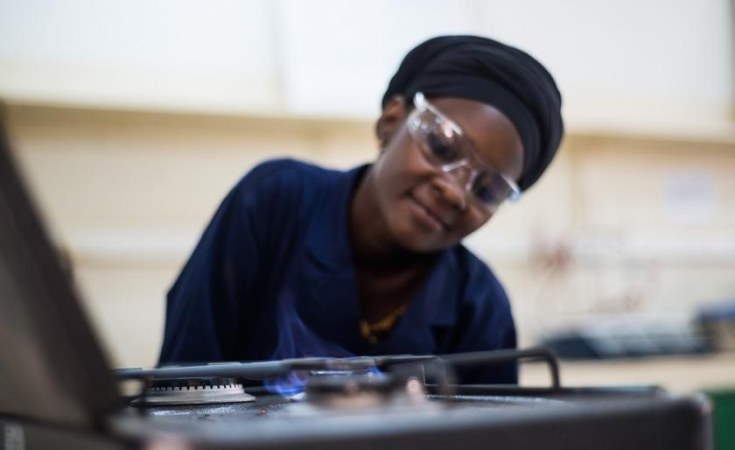It's 6:00 am inside Mulanje Prison in southern Malawi. The sound of voices coming from inside of cells marks the beginning of the day, as prisoners put on their regulation white shirts and shorts. For inmate Julius Motha, 28, this is the time to operate the biogas digester, a plastic contraption about the size of a standard fuel tanker.
It converts organic waste, such as prisoner's faeces, to gas energy and powers the cooking pots for their daily meals.
He's one of more than 200 prisoners here who are on remand, while others have been convicted of various crimes from around the local districts.
The initiative put in place by United Purpose, a local charity, is an attempt to control deforestation in the district and the country, which has seen a huge loss of trees for timber, charcoal and firewood for cooking.
The aid group trained Motha and other inmates and staff on how to maintain the system. The prisoners told Africa Calling that life is easier now than when they had to chop wood.
Using wood and land degradation
Malawi relies heavily on wood fuel as a major energy source for cooking and heating. An estimated 80 percent of the entire population uses firewood for cooking, according to Malawi's Ministry of Natural Resources.
Deforestation is a serious problem in Malawi. Between 1991 and 2017, the country lost roughly 20 percent of its total forest cover due to fuel wood collection and subsistence and commercial agriculture, according to research conducted by Malawi's Natural Resource Committee.
The impact has been devastating-- deforestation has led to extensive run off which has caused silt build up in hydropower systems causing blackouts throughout the country.
More water leaching into the soil because of lack of trees also leads to less water in the fields, causing crops to fail from lack of water.
Biogas digesters were introduced to the local prison, said Esther Mweso, programme manager for United Purpose, because it is one of the institutions which they say regularly uses a lot of wood, primarily for cooking.
How much of Africa's energy needs can be met with renewables?
The charity also introduced two more digesters in Zomba and Nsanje Districts.
"First of all, we made assessments in the prisons and found out that they were using a lot of firewood, about 60 cubic metres per month. On top of that, they were also spending about 600,000 Malawi Kwacha (640 euros) for electricity and procuring firewood," Mweso said, adding that each digester cost them about €17,000.
The charity also introduced two more digesters in Zomba and Nsanje Districts.
Helping the prison and the environment
Reducing firewood consumption has cut their bills in half, said George Chibwe, senior superintendent of Mulanje prison.
Currently, the biogas powers one cooking pot while the other runs on electricity. For now, they still procure firewood for backup in case there is a blackout.
Inside the kitchen, prison chefs are cooking with two big pots; one using the biogas and the other using electricity. Contrary to popular belief, there is no faecal smell either.
"During the time we've been using the biogas digester, we've improved in terms of the cooking time and it's efficient," said Chibwe.
"While it used to take five hours to prepare the food, it takes 3 hours now."
The inmates who cook the daily meals also have noticed a difference.
"When I first came here in 2018, we were struggling to cook because we were using firewood... now, the cooking process is faster," inmate Felix Chimombo said.
Although the biogas digester is proving to be useful, the project hasn't yet reached 100 percent capacity because the volume of faecal matter produced by the prison per day is not enough to heat both cooking pots.
While there were 400 prisoners when the system was first installed in June last year, authorities reduced the number of the prisoners to almost half in order to prevent the spread of Covid-19.
Institutions like prisons buy firewood from traders, which adds to tree loss, said Tiwonge Gawa, National Chair for the Wildlife and Environmental Society of Malawi.
She applauded the initiative, saying similar projects will go a long way in reducing deforestation in the country.
Check out the audio version of this story on Africa Calling podcast.


